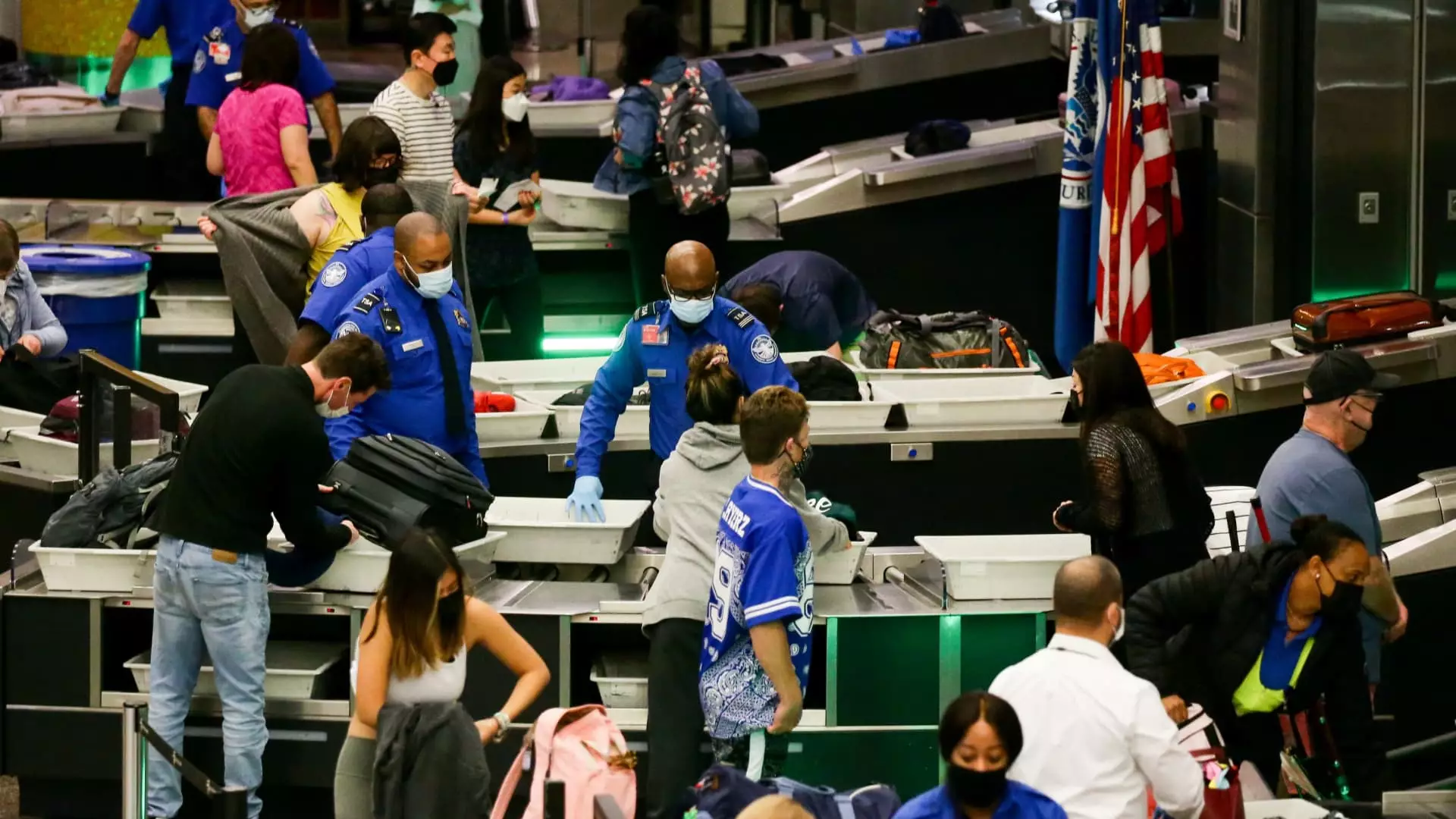In a bold and alarming move, the American Federation of Government Employees (AFGE) has initiated legal action to thwart the Trump administration’s latest attempt to undermine labor rights. The president’s administration is seeking to terminate collective bargaining rights for nearly 50,000 Transportation Security Administration (TSA) officers, crucial personnel staffing America’s aviation and transport security. This lawsuit, filed in Seattle, epitomizes the clash between governmental authority and workers’ rights, illustrating how federal employment practices are becoming battlegrounds in a culture war over labor rights and representation.
What is particularly concerning is that this case is not merely an isolated incident but signals a systematic dismantling of labor protections as a direct response to the political and legal challenges posed by unions. The AFGE asserts that the Department of Homeland Security (DHS) is acting out of retaliation, seeking to penalize the union for standing against various Trump administration policies. Such actions reveal a troubling response to dissent that threatens the very fabric of democratic labor rights. It seems that this administration might prioritize political vendettas over the welfare of the officers who ensure our safety in transportation.
The Political Underpinnings of Retaliation
Central to the AFGE’s argument is a striking pattern of retaliatory behavior, crystallized by President Trump’s history of enforcing policies that silence opposition. The administration’s order to sever ties with Perkins Coie—a law firm associated with Trump’s political opponents—serves as a stark example of how this administration utilizes its power to suppress dissenting voices. The lawsuit highlights a glaring inconsistency in the administration’s commitment to upholding the rights of frontline workers even as it simultaneously engages in targeted actions designed to erase labor agreements.
This raises the question of how much of this retaliation is rooted in mere political strategy versus a genuine concern for the size and effectiveness of government. The assertion by Secretary Kristi Noem that existing agreements unfairly benefit unions over officers hints at a deeper ideological conflict on the role of labor in federal governance. By attempting to cancel a seven-year agreement, the Trump administration is signaling that it deems labor negotiations as obstacles rather than essential mechanisms for worker representation.
The Broader Implications for Workers’ Rights
Beyond the immediate impact on TSA officers, this lawsuit reflects a broader assault on organized labor. The historical context is critical here: during the Obama administration, TSA personnel were granted enhanced rights to negotiate, a decision that reflected a growing recognition of their contributions. The Trump administration’s pushback against these rights forms part of a larger trend where labor unions find themselves increasingly at odds with the political class. The push to restrict the bargaining rights of TSA officers encapsulates a disturbing ethos—one that prioritizes administrative control over worker empowerment.
This isn’t just an issue for TSA officers; it poses questions regarding labor rights for millions of federal employees. If the government can unilaterally rescind bargaining agreements through executive action without due justification, what’s to prevent future administrations from systematically dismantling labor protections across the spectrum? The absence of legal recourse for workers faced with such actions could lead to a workforce that is disillusioned and unprotected.
A Union’s Stand and Collective Power
In light of these alarming developments, unions, including those representing flight attendants and airline workers, have rallied in support of the AFGE’s lawsuit, demonstrating that a united front amongst labor organizations is essential in these times. The message is clear: when labor stands together, it can wield considerable power. This collective action is a testament to the necessity of unity in defending workers’ rights, particularly in an era that seems determined to erode the very foundations of labor representation.
As this legal battle unfolds, it becomes more than just a struggle over bargaining rights; it is a frontline defense against the encroachment of authoritarianism into federal labor relations. The outcome could set a precedent, potentially enabling or hindering future labor actions not just in transportation but across all sectors of federal employment. Therefore, it is not merely the TSA officers but all workers who have a stake in this struggle. The rights we safeguard today will determine the landscape of labor rights for generations. In this grand scheme of power dynamics, the AFGE’s fight for justice transforms into a pivotal moment that echoes throughout the heart of American democracy.


Leave a Reply